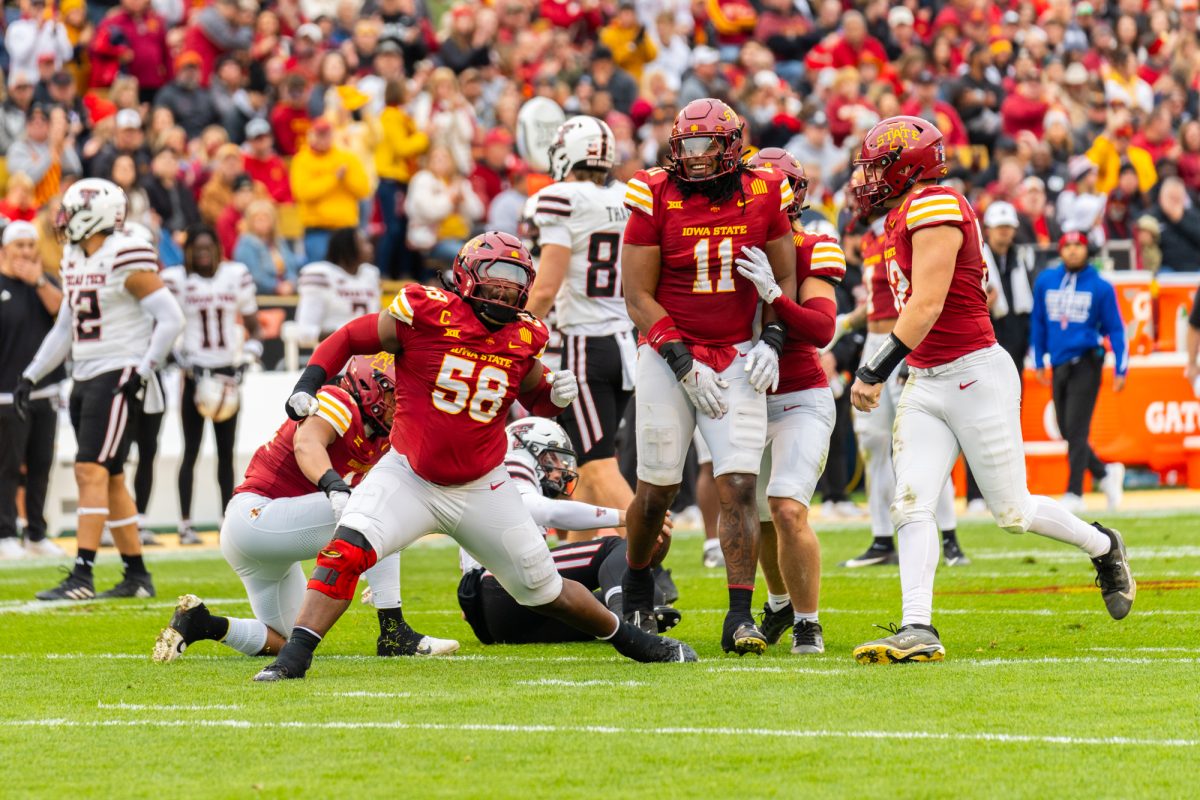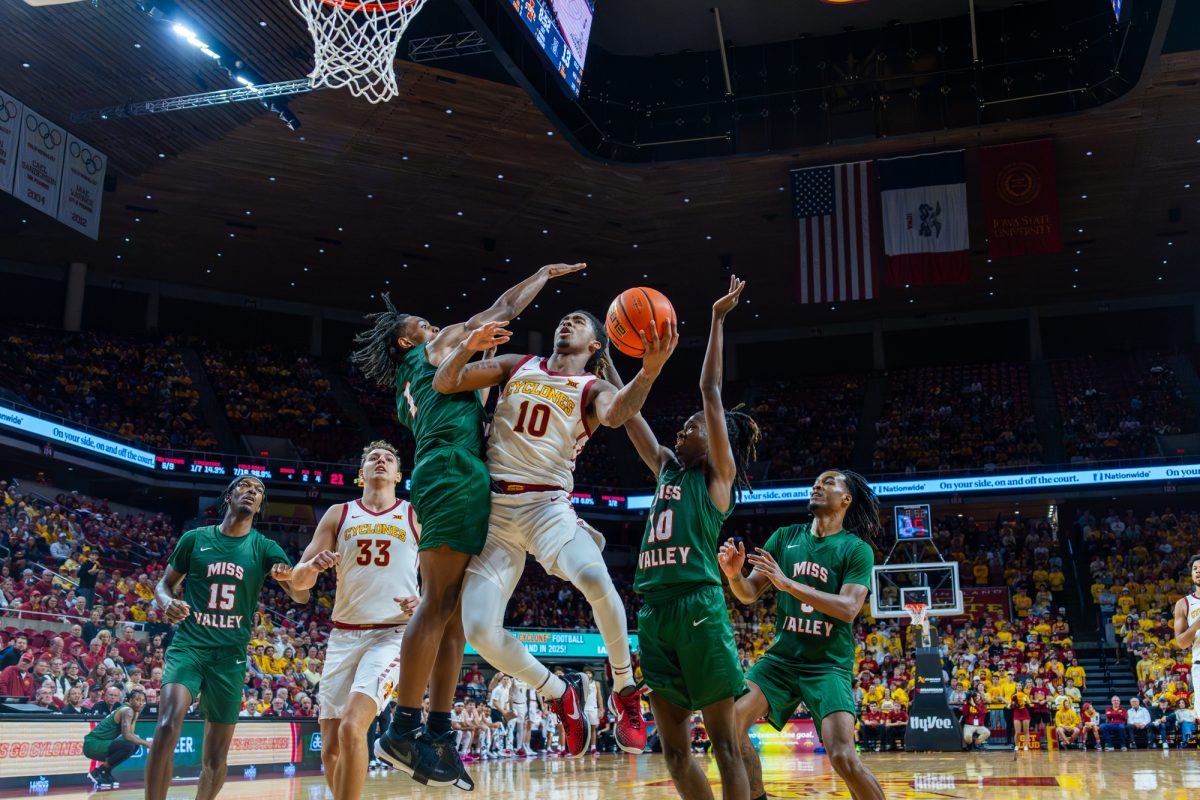Beyond swimsuits and gowns
January 23, 1998
Every year, hundreds of young women enter beauty pageants.
Some, like Miss Universe, are pageants to win modeling contracts. Others, of course, are for scholarships. Yet competitors in scholarship pageants are subject to the same appearance rigors as competitors in modeling contract pageants. Are not intelligence, service, and merit supposed to be the factors to determine scholarship awards?
The prettiest one still always wins.
Scholarship beauty pageants are no different than the modeling pageants, judging mostly on appearance. Diane White from the Boston Globe jokingly wrote, “Not that it matters what they look like anyway, since as we all know, the Miss America pageant is not a beauty pageant but a scholarship program, a noble undertaking, a celebration of truth, justice, the American way, etc.”
The woman with the most merit is supposed to win the scholarship pageant, right? The one who is the smartest, who has the best platform, the one headed to graduate school?
Wrong. It is the one with the smoothest behind, the lowest cut swimsuit and the evening gown to hawk for a year’s worth of car payments.
Scholarship beauty pageants (and, for that matter, non-scholarship pageants) are bogus, objectifying events that go against the equality women fight for every day.
Jennifer (not her real name) is a 19-year-old woman who entered the famed Miss America “scholarship” pageant hoping to defray a few college costs.
Jennifer entered the regional contest to go to Miss Iowa and then on to Miss America. After winning this regional “scholarship” pageant, she was, of course, very happy. She did, however, wonder why this “scholarship” pageant had a swimsuit competition.
Does appearance in a swimsuit determine intelligence? If you have a few curves and hangs on your body, does it affect your mind? Do these so-called “imperfections” make somebody less intelligent, less ambitious, less able, less worthy in any way? Please present the scientific evidence that relates hip size to IQ.
The “scholarship” pageant coordinators say the swimsuit competition is intended to show overall health and fitness. But what is health?
Take weight for example. A healthy weight for a woman who is 5’6″ is anywhere from 117-159, according to the Metropolitan Life Insurance Company tables. The chart does not say, “By the way, in order to REALLY be healthy, one needs to have a smooth silhouette in a bathing suit, large breasts and slim thighs.”
Appearance in a swimsuit also does not indicate overall fitness. If judges want to know overall fitness, have contestants run a mile. Walking in heels and a bikini does not say much about fitness, unless one is judging balance.
Jennifer wore a tank style, scoopneck swimsuit in the pageant. After her win, pageant officials told her to find a v-neck swimsuit so she could show more cleavage. Washington Monthly writer Michelle Cottle reported when Miss America started to allow two piece swimsuits, those who wore two piece swimsuits did proportionately better that those who “kept it covered.” Apparently, cleavage is also connected to the mind and one needs a lot of it to be smart enough to win “scholarship” pageants.
Miss America holds workshops for contestants. Jennifer attended a workshop intended to discuss the Miss Iowa pageant. She stated the young women attending only talked about “gowns, swimsuits, and boyfriends.” Granted, when women get together, they will discuss topics of that nature. But if this were a “scholarship” pageant, shouldn’t they be worried more about school?
What about the financial cost of “scholarship” pageants? One potential Miss Iowa contestant spent $1800 for her evening dress (she got it in L.A.), and another had her dress specially made. Jennifer had spent $300 on her dress, and the pageant people said her dress was not good enough to win Miss Iowa. One needs to be able to spend thousands of dollars on evening gowns and other apparel in order to be smart enough to win “scholarship” pageants.
The Miss Iowa pageant is in June. Jennifer must now find enough money to buy a v-neck swimsuit, a new interview suit (her first, by the way, was also not nice enough), and an evening gown. Jennifer said she believes the pageant officials are trying “to help her win” this “scholarship” pageant by make her “look sexy.” Sexiness requires a vast amount of expense (and cleavage). One needs these to win “scholarship” pageants. I hope Jennifer has some money left over from her winnings after she buys all this.
What does this do for women? Nothing positive. Beauty pageant promoters and even contestants say, “It gives young women a positive role model because these girls all go to school and accomplish their goals.”
So where is the “scholarship” in this scholarship pageant?
The “real ” competition is supposed to be the interview, but what is the biggest part of the pageant that America sees? The cutesy dance numbers, the swimsuit, the evening wear! Would not these segments seem most important to viewers?
So why don’t we see the interview beyond a few clips of Miss Congeniality bobbing her head in agreement with the interviewer? That’s where the “real” competition is, right? Doubtful. Cottle states, “But whatever peripheral attributes the various [scholarship] pageants measure, a girl’s physical beauty remains of central importance.”
What young girls and women learn from pageants is that success, happiness, intelligence, and worth REQUIRES one to be “perfect” looking. Self esteem and self worth are more than appearance. Cottle says, “You don’t have to be a rabid feminist to understand the downside of encouraging females … to view nice teeth and glossy hair as indicative of a person’s worth.”
Finally, Joan Ryan from the San Francisco Chronicle, says, “The Miss America Pageant has always reminded me of a sophisticated 4-H project.” (Prized female humans! Judging at 9 p.m.!).
How accurate she is.
April Eichmeier is a senior in advertising from Emmetsburg.






